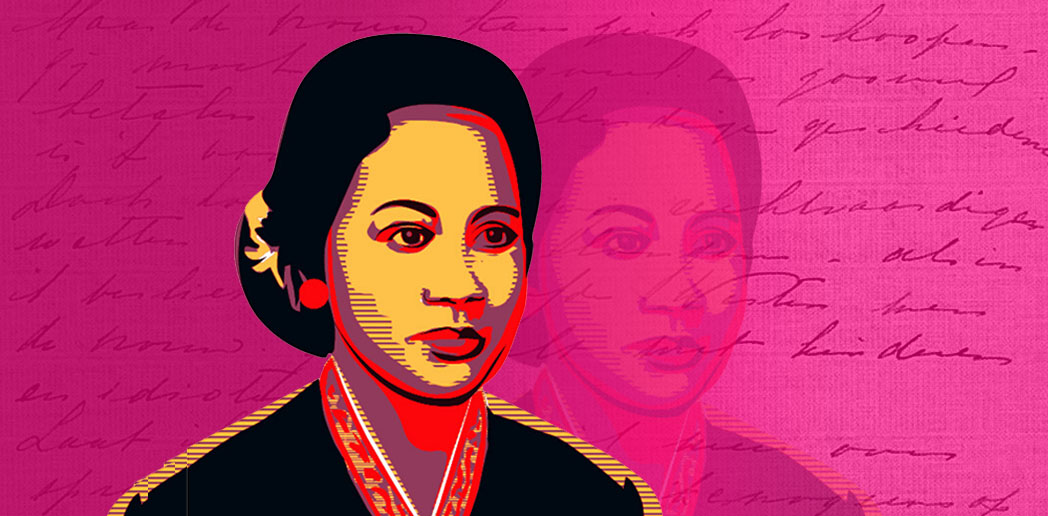When I was a young, stubborn, idealistic feminist (it was a phase, don’t worry), I used to protest the idea of R.A. Kartini being a feminist icon. I would say, “What did she even do anyway besides writing letters? She didn’t even fight for our independence like Cut Nyak Dien. She hated the whole idea of being married off to some guy she didn’t even love, yet she went along with it, and even when she had the chance to pursue her dream, she opted for marriage instead? What kind of feminist is that?”
Though my opinion about R.A. Kartini being touted as the female emancipation/feminist icon remains pretty much the same, my opinion of the woman herself has more or less changed. She might not have been a feminist, but she was also a woman ahead of her times having aspirations and dreams that other women in her era dared not have, or did not care enough to have.
The fact that she finally resigned to marriage instead of pursuing her dream could simply just be pragmatism. Even if she could continue her education, there was no guarantee she was going to be able to work afterwards. It was the 1900s during the Dutch occupation. It was hard enough for educated Indonesian men to have decent jobs, let alone women. Maybe she just wasn’t ready to gamble the financial security that came with her marriage in pursuit of a higher education, where even if she succeeded there was just no guarantee that her future would be secured. It was highly doubtful her then-fiance would be willing to wait for her. This was real life in 1900s Java, not in a Gabriel Garcia Marquez novel.
Also Read: Kartini the Forgotten Nationalist
I have more empathy towards Kartini these days. Not just because I was no longer young and idealistic, but also because I have a better understanding of what it means to be a woman in this particular society and culture. Even in 2020, not all of us women get to have choices. Those of us who are educated middle-uppers get the privilege of having choices, simple choices like choosing when and whom to marry, whether or not we want to have children, whether we want to have a career or be a stay-at-home mom, and the likes.
Other women aren’t so lucky. There are still arranged marriages to this day with girls as young as 11 being sold off to marry men twice or three times their age. There are still women who feel like they have no other choice but to marry because they have no other way to earn a living on their own. There are still women who have no say over whether or not they want to have children, because it’s always decided for them by their husbands or families and they can’t do anything about it because they lack the means to be independent from their husbands or families.
How can I say to these women: you have a choice, you decide when to marry, whom to marry, when to have children, and whether or not you should have a career or stay home and take care of your family when the fact of the matter is, they often don’t have a choice? Ideally, all women should have a choice. But that is the dream that we want to happen, it is not yet a reality. So how can I judge women who marry out of convenience instead of love? How can I judge mothers who have children out of pressure instead of the desire to nurture another human being?
I am privileged in the sense that even though I wasn’t born in a wealthy family, they were well-educated, open-minded and they encouraged me to go after what I wanted and not settle for anything less than the best that I deserved. But my reality is only a pipe dream for some women. Even those who aren’t living in poverty, those we’d assume have as many choices as we do, sometimes do not actually have that privilege. When faced with the reality of losing the support and safety net of their family, the only people they’ve known and relied on all their lives, can you really judge some women for letting their husbands, their families, or even the society around them make their choices for them, even if they don’t necessarily like it?
Also Read: So You Think You Know Kartini
And what about those women who do not know any better? Who have a limited view of life, who don’t even realize that they have so many other choices, so many different paths to take than the traditional “go to school, university, get a job, get married, have kids, raise your kids, watch your kids get married, retire, have grandchildren, and die”? Can I really judge them for not wanting more out of life when that is all they’ve ever known?
Despite reading about her life, I have no idea the kind of choices (or lack thereof) that Kartini was faced with at the time, and why she chose what she chose. All I know is, that even though she didn’t end up fighting for equality (she merely wished it), she was still a heroine simply because she was a real woman with dreams and ambitions as well as fears, insecurities, weaknesses, and limitations.
I have never liked the idea that a woman has to be perfect to be a heroine and an inspiration. That she has to make all the right choices and not have any weaknesses. That she has to be able to do it all without any fear or insecurity. We all make mistakes, we all make bad choices sometimes, and we all let our fears and insecurities get the best of us. Kartini was a heroine because she was not afraid to share her dreams and visions, even if she didn’t even believe they could come true for her.
And maybe that was the kind of heroine an Indonesian woman needed: a flawed, insecure heroine who despite everything, still dared to imagine a better future.







Comments